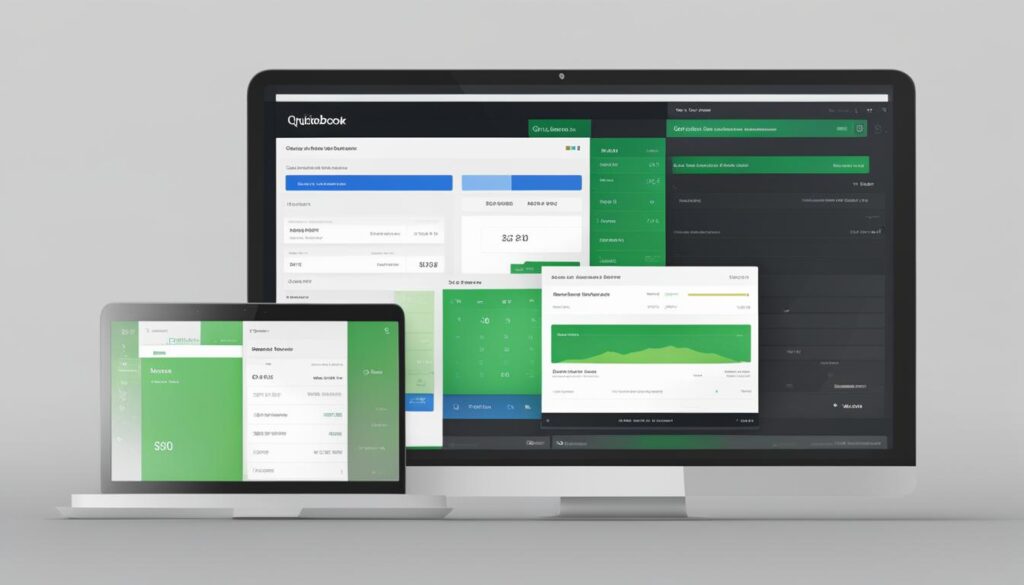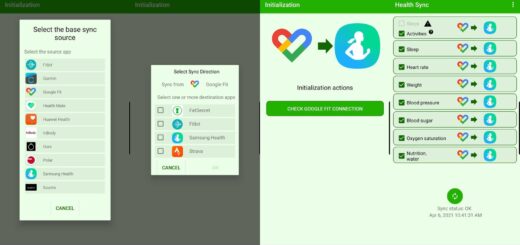Add Someone to Your Bank Account Online Easily
Adding someone to your bank account can be a simple and convenient process that can be done online. Whether you want to teach a child about financial management, combine accounts with a spouse, or manage the finances of an elderly parent, adding someone to your bank account can provide numerous benefits. However, it’s important to consider the implications of such a decision and understand the necessary steps to ensure a smooth process.
Key Takeaways:
- Adding someone to your bank account can be done online, making it convenient and hassle-free.
- Consider the implications of joint ownership and potential liability for the other person’s debts.
- Consult your bank for their specific procedures and requirements.
- Ensure you have the necessary identification documents before proceeding with the account addition process.
- Explore alternative options for sharing bank account access, such as designating a payable on death (POD) beneficiary or granting power of attorney.
Reasons to Add Someone to Your Bank Account
There are several compelling reasons why you might consider adding someone to your bank account. Let’s explore some of the most common and practical motives behind this decision.
Teaching Financial Responsibility
Adding a child or young adult to your bank account can be an effective way to teach them about financial responsibility. By granting them access and involving them in the management of funds, you can impart valuable lessons on budgeting, saving, and making responsible financial decisions.
Combining Funds for Household Expenses
Sharing a bank account with a spouse or partner can streamline your financial management and simplify household expenses. By integrating both incomes into a joint account, you can easily cover bills, mortgage payments, groceries, and other shared financial responsibilities.
Managing Finances for an Elderly Parent or Friend
As loved ones age, their ability to manage their finances effectively may decline. Adding yourself to their bank account can enable you to help them with bill payments, medical expenses, and other financial matters. This ensures their financial well-being while also providing peace of mind for both parties.
Facilitating the Transfer of Assets
When you add someone to your bank account, it can simplify the process of transferring assets in the event of your passing. By designating them as a co-owner or beneficiary, you can streamline the distribution of funds and assets, minimizing administrative hurdles and potential disputes.
However, it’s critical to be aware of the potential consequences when adding someone to your bank account, such as joint access to funds and the possibility of being liable for the other person’s debts. Make sure to weigh the pros and cons carefully and consult with your financial advisor or bank representative before making this decision.
Stay tuned for the next section, where we will discuss important considerations when adding someone to your bank account.
Considerations When Adding Someone to Your Bank Account
Before making the decision to add someone to your bank account, it’s crucial to consider the implications and potential consequences of your actions. Here are some important considerations:
- Equal access to funds: When you add someone to your bank account, both account holders will have equal access to the funds. This means that the other person can withdraw money, make purchases, and perform other transactions without any restrictions or legal consequences.
- Liability for debts: It’s essential to be aware of the other person’s financial habits and credit history. If the person you add to your bank account has outstanding debts, you could be held liable for those debts. This is a significant risk to consider before making this decision.
- Impact on inheritance and asset distribution: Adding someone to your bank account can also affect inheritance and the distribution of assets. In the event of your passing, the funds in the joint account may automatically transfer to the other account holder, regardless of your original intentions or will.
- Difficulty of removal: Once you add someone to your bank account, it can be challenging to remove them later, especially if the other account holder refuses to cooperate. Removing someone from a joint account requires the consent and cooperation of all account holders, which may not always be easy to obtain.
Expert Quote:
“Adding someone to your bank account can provide convenience, but it’s important to carefully consider the potential risks and long-term implications. Joint ownership means shared control, liability, and potential conflicts over funds. Make sure to thoroughly assess your financial situation and consult with a professional before making a decision.” – [Expert Name], Financial Advisor
Before proceeding with the addition of another person to your bank account, it’s crucial to thoroughly assess your financial situation, consult with a trusted financial advisor, and understand the potential risks and benefits involved.
caption: Adding someone to your bank account is a decision that should be carefully considered.
How to Add Someone to Your Bank Account
To add someone to your bank account, you need to follow a few simple steps. Start by contacting your bank and inquiring about their specific procedures. It’s important to be aware that each bank may have slightly different requirements, so it’s best to get the information directly from your financial institution.
Once you have the necessary information, you will likely need to make an in-person appointment or visit a branch to begin the process. This allows the bank representative to guide you through the necessary paperwork and answer any questions you may have.
During your appointment, be prepared to provide identification documents for both yourself and the person you want to add to your account. These documents may include a government-issued ID, birth certificate, social security card, or proof of visa if applicable. Your bank may also ask you to update your account information, such as adding or removing names and confirming contact details.
By following these steps and providing the required documentation, you can successfully add someone to your bank account. Remember to consult with your bank for their specific procedures to ensure a smooth and efficient process.
Adding Someone to an Existing Bank Account
If you already have an established bank account and want to grant someone access to it, such as a spouse or business partner, you have the option to add them to your existing account. This can streamline financial management and make it easier to handle shared expenses.
However, it’s important to note that the process of adding someone to an existing bank account may vary depending on your bank’s policies. To get accurate and up-to-date information, I recommend contacting your bank directly to inquire about their specific requirements and procedures.
Adding someone to an existing bank account can be a straightforward process, especially if both parties are willing and have the necessary documentation. By adding an authorized user, you are granting them access to the funds in the account and allowing them to make transactions on your behalf.
Keep in mind that when you add someone to your bank account, they will have the same rights and privileges as you do, including access to the account balance, ability to withdraw funds, and the ability to make purchases or payments using the account.
Adding someone to your existing bank account can be beneficial in various situations. For example, if you and your spouse share household expenses and manage your finances together, having a joint bank account can simplify the process.
Benefits of Adding Someone to an Existing Bank Account
- Convenient access: By adding someone to your existing bank account, you can both have access to funds, making it easier to manage shared expenses.
- Financial transparency: Adding someone to your bank account promotes transparency and enables both parties to have a clear view of the account’s transactions and balance.
- Streamlined financial management: Having a joint account can streamline financial management, especially for shared bills, investments, and savings goals.
Considerations When Adding Someone to an Existing Bank Account
While adding someone to your bank account can offer benefits, there are important considerations to keep in mind:
- Shared liability: When you add someone to your bank account, both parties become legally responsible for any debts or overdrafts incurred.
- Trust and relationship dynamics: Adding someone to your bank account requires a high level of trust and open communication to ensure financial harmony.
- Potential conflicts: Joint ownership of funds can sometimes lead to disagreements or conflicts regarding spending habits, decision-making, and financial priorities. Open and honest communication is crucial to address and resolve any issues that may arise.
Before adding someone to your existing bank account, it’s recommended to have a conversation with the individual to discuss financial goals, responsibilities, and expectations. This will help ensure that both parties are on the same page and have a clear understanding of each other’s financial habits and preferences.
Remember, every bank has its own specific requirements and procedures for adding someone to an existing bank account. To fully understand the process, contact your bank directly for accurate and up-to-date information.

Documents Needed to Add Someone to a Bank Account
When adding someone to a bank account, there are certain documents that you will typically need to provide. These documents are required by the bank to verify the identities of both the account holder and the person being added. The specific requirements may vary depending on the bank and individual circumstances, but some common documents include:
- A valid government-issued photo ID for the account holder, such as a driver’s license or passport
- A valid government-issued photo ID for the person being added, such as a driver’s license or passport
In addition to these primary identification documents, your bank may require additional documentation depending on the situation. For example, if the person being added is a minor, a birth certificate may be necessary to establish their age. If the person being added is a non-US citizen, proof of visa or legal residency may be required.
It is important to consult with your bank to understand their specific document requirements before proceeding with the account addition process. By ensuring you have the necessary paperwork prepared in advance, you can streamline the process and avoid any unnecessary delays or complications.
As an example, here is a table summarizing the common documents required when adding someone to a bank account:
| Document | Account Holder | Person Being Added |
|---|---|---|
| Government-issued Photo ID | Valid | Valid |
| Birth Certificate | N/A | If applicable |
| Social Security Card | N/A | If applicable |
| Proof of Visa or Residency | N/A | If applicable |
Note: The specific documentation requirements may vary depending on the bank and individual circumstances. Consult with your bank for their specific requirements.

Pros and Cons of Adding Someone to Your Bank Account
When considering adding someone to your bank account, it’s important to weigh the pros and cons of this decision. While there are advantages to joint account ownership, there are also potential drawbacks that need to be carefully considered.
Advantages of Adding Someone to Your Bank Account
- Convenience and Ease of Access: One of the main advantages of adding someone to your bank account is the convenience it offers for joint financial management. This can be particularly beneficial for couples sharing expenses or adult children helping their elderly parents with finances.
- Better Financial Planning: Sharing a bank account can improve transparency and facilitate better financial planning. It allows both parties to have a clear picture of income, expenses, and savings, making it easier to set goals and track progress.
- Emergency Preparedness: Having joint access to funds can be crucial in emergency situations, providing quick access to money for unexpected expenses or urgent financial needs.
Disadvantages of Adding Someone to Your Bank Account
- Joint Liability for Debts: One of the potential risks of adding someone to your bank account is that both parties become jointly liable for any debts or financial obligations. This means that if the other person incurs debt or fails to repay loans, you could be held responsible.
- Loss of Control: Adding someone to your bank account means relinquishing some control over the account. Both parties have equal access to funds, which may lead to disagreements over spending or financial decisions.
- Difficulty in Removal: Once someone has been added to a bank account, it can be challenging to remove them without their consent. This can pose problems if the relationship sours or circumstances change.
Before adding someone to your bank account, take the time to carefully consider these pros and cons. Assess your individual situation, financial goals, and level of trust with the other person. It’s also a good idea to consult with your bank to understand their specific procedures and policies.
By weighing the advantages and disadvantages, you can make an informed decision that aligns with your financial needs and priorities.
Alternative Options for Sharing Bank Account Access
While adding someone to your bank account is a common method of sharing access to funds, it is important to know that there are alternative options available. These alternatives provide flexibility and allow you to tailor the level of access to suit your specific needs. Consider the following options:
1. Designate a Payable on Death (POD) Beneficiary
Designating a Payable on Death (POD) beneficiary allows you to specify who will inherit the funds in your bank account after you pass away. This option ensures a smooth transfer of assets directly to the designated individual, bypassing the probate process. It grants them access to the funds without the need to be added as a joint account holder during your lifetime.
2. Grant Power of Attorney for Property
Granting Power of Attorney (POA) for property allows you to authorize someone to act on your behalf regarding your bank account and other financial matters. This legal document gives the designated individual the authority to make financial transactions, manage the account, and access funds as specified in the POA document. It offers a solution for granting access and control while still maintaining ownership and oversight.
3. Give Check Writing Privileges
If you prefer to maintain full control of your bank account but still wish to share access, you can give someone check writing privileges. This option allows the designated individual to write checks from your account with your approval. It provides a more limited form of access compared to adding them as a joint account holder, allowing you to keep track of transactions and maintain control over your funds.
Remember, when choosing alternative options for sharing bank account access, it is important to consult with professionals such as attorneys or financial advisors to understand the legal and financial implications.
Take the time to evaluate these alternative options and determine which method aligns best with your specific needs and financial situation. By exploring these options, you can find a solution that provides the appropriate level of access and control while considering your preferences and circumstances.
Adding Someone to Business Bank Accounts
If you own a small business and need to share access to your business bank accounts, there are specific considerations to keep in mind.
- Option 1: Adding a Signer
- Option 2: Designating a Power of Attorney (POA)
If you trust another individual to handle day-to-day banking tasks, you can add them as a signer on your business bank account. This gives them full access to the account and the ability to make financial transactions on behalf of the business.
Alternatively, you can designate someone as a power of attorney (POA) to act on your behalf for banking matters. This allows them to make decisions and perform financial transactions within the scope of the granted power of attorney.
Consider the following factors when deciding how to share bank account access for your small business:
- Trust and reliability: Choose someone you trust implicitly, as they will have access to your business finances.
- Security measures: Implement strong passwords and other security measures to protect your business bank account.
- Responsibility and accountability: Clearly communicate the expectations and limits of access to the individual you add to your business bank account.
Pros and Cons of Adding Someone to Business Bank Accounts
| Pros | Cons |
|---|---|
| Shared responsibility for financial tasks | Potential risk of unauthorized transactions |
| Convenience for day-to-day banking activities | Potential for disputes or conflicts |
| Streamlined financial management | Potential loss of control over account |
| Ability to delegate financial responsibilities | Potential legal complications |
Keep in mind that adding someone to your business bank account requires careful consideration and trust. Evaluate the potential benefits and drawbacks before making a decision that aligns with your business’s financial needs and goals.
Conclusion
Linking your bank account to QuickBooks Online can provide a streamlined and efficient way to manage your finances, whether for personal use or small business operations. By following the necessary steps to connect your bank account to QuickBooks Online, you can easily track your expenses, reconcile transactions, and generate financial reports.
However, before making the decision to link your bank account, it’s important to carefully consider the implications. Understand that connecting your bank account involves sharing sensitive financial information, so it’s crucial to ensure the security of your data and choose a reputable platform like QuickBooks Online. Additionally, familiarize yourself with the terms and conditions of service to prevent any potential issues or misunderstandings.
To connect your bank account to QuickBooks Online, follow the steps outlined in the platform’s documentation or consult with their customer support for guidance. Take note of any specific requirements or procedures they may have in place to ensure a seamless integration. By properly setting up your bank account in QuickBooks Online, you can enjoy the benefits of automated financial tracking and management.
FAQ
How do I connect my bank account to QuickBooks Online?
To connect your bank account to QuickBooks Online, you can follow these steps:
What are the reasons to add someone to my bank account?
There are various reasons why you might want to add someone to your bank account. Some common reasons include teaching a child about financial responsibility, combining funds with a spouse for household expenses, or managing the finances of an elderly parent or friend.
What considerations should I keep in mind when adding someone to my bank account?
Before adding someone to your bank account, it’s important to consider the potential implications, such as joint liability for debts and loss of control over the account. It is also more difficult to remove someone from a joint account once they have been added.
How can I add someone to my bank account?
To add someone to your bank account, you should contact your bank to find out their specific procedures. You may need to provide identification documents, such as a government-issued ID, birth certificate, social security card, or proof of visa, if applicable.
Can I add someone to an existing bank account?
Yes, it is possible to add someone to an existing bank account. However, the process may vary depending on your bank’s policies. It’s best to contact your bank directly for specific details and requirements.
What documents do I need to add someone to a bank account?
When adding someone to a bank account, you will typically need to provide certain documents. These usually include a photo ID for both the account holder and the person being added. Additional documentation may be required depending on the bank and individual circumstances.
What are the pros and cons of adding someone to my bank account?
The main advantage of adding someone to your bank account is the ease of access and convenience for joint financial management. However, it’s important to consider the potential risks, such as joint liability for debts and loss of control over the account.
What are the alternative options for sharing bank account access?
Alternative options for sharing bank account access include designating a payable on death (POD) beneficiary, granting power of attorney for property, or giving someone check writing privileges. Each option has its own advantages and considerations.
Can I add someone to my business bank accounts?
Yes, if you own a small business and need to share access to your business bank accounts, you can add another individual as a signer on the account or designate someone as a power of attorney (POA) to act on your behalf for banking matters.
What is the conclusion of adding someone to my bank account?
Adding someone to your bank account can be a useful solution for joint financial management or in certain situations, such as managing the finances of an elderly parent or friend. However, it’s important to carefully consider the implications and consult with your bank before making a decision that aligns with your financial goals and priorities.
















It's great that you talked about how business insurance can provide financial protection against unexpected events and help ensure the…
I like that you mentioned how business insurance is essential for protecting your bottom line and the long-term viability of…